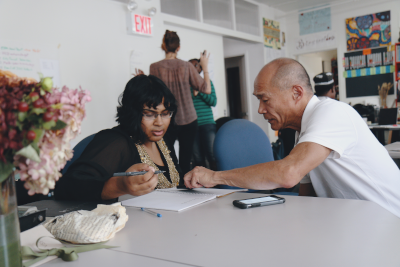
Open Justice Week 2025
Open Justice Week 2025
The Open Justice Centre is pleased to present our eighth annual e-festival of public legal education.
During this week, running 07 July - 11 July 2025, we will be presenting legal education activities which have been written and presented by students of the W360 Justice in Action module and other law students.
Family Law Clinic

During 24-25, the Family Law Clinic provided students with a number of different opportunities to provide legal advice and information to members of the public about family law. All students worked on a project for LawWorks, a charity committed to enabling access to justice through free legal advice. LawWorks Free Legal Answers is a website where individuals on a low income, and not eligible for legal aid, can request initial or brief advice about a specific legal issue. Working in a ‘firm’ of 3 – 5 students, the groups researched a specific family law query posted on the website and provided written advice for the client.
During the year the Clinic answered 14 different legal queries on a variety of topics, including disputes involving a chip’s upbringing, divorce, financial issues on separation and divorce, and cohabitant’s rights when a partner dies. Examples can be found at the following links of the advice given on divorce proceedings, financial arrangement after divorce and a dispute concerning a child’s upbringing.
Please note that these documents were provided in answer to specific information (which has not been published to preserve client confidentiality). They should therefore not be relied on as legal advice for anyone else.
Most students also provided advice to clients referred from Suffolk Law Centre with a family law problem. Twenty clients were referred with a variety of different legal issues, and the client was allocated to a student firm. The students attended the online interview with the client, which was conducted by a member of staff, and took notes. They then researched the legal issue and drafted a comprehensive written letter of advice for the client.
Three students also worked on an independent public legal education project. Public legal education aims to provide information on legal rights and remedies to members of the public in a clear, accessible and engaging way. The students drafted either a leaflet or poster which provided information on your legal rights if you are stalked or harassed by a former partner. The document included the legal remedies a person can take, as well as practical advice. This involved the students researching the area of law and practical advice, designing a leaflet, choosing artwork and explaining legal rights in an accessible way. An example of one of the leaflets produced can be found at the following link.
Law Reform Clinic

The Open Justice Law Reform Clinic gives students the opportunity to carry out research into an area of law being considered by the Law Commission and to make recommendations for reform.
This year, students responded to the Law Commission's consultation on the law of homicide and in particular the defences for victims of domestic abuse who kill their abusers. The students produced reports entitled 'How does the presence of mental illness impact the legal defence strategies for victims who kill their abusers, and should psychological assessments be mandatory prior to determine these defences?'; 'When survival turns fatal: the need for legal defence in abuse driven homicide cases', and 'Project Report: A Comparison of the Legal Defences Available for Women Who Kill Their Partners as a Result of Abuse in England and Norway.'
Students produced excellent work as part of this project.
Business and Employment Law Clinic

The Business and Employment Law Clinic offers students the opportunity to engage with real-world employment and business law issues under the supervision of experienced academic and legal professionals.
For the first phase of the project, students attended a briefing in which Dona MacLachlan (a former OU alumnus and now an employment specialist with Citizens Advice) and an Associate Lecturer (who sits as a judge in employment tribunals) shared their insights and experience of working in this area of law. Each group of students was then given an employment case study, based on a case that Dona was working on or on which she had worked recently, (anonymised to protect confidentiality). The groups were required to identify the key issues involved, research the relevant areas of law and produce letters of advice for the clients in question, under the supervision, and with the support of their tutor. The final versions of these letters were sent to Dona who provided feedback to the students on each letter and gave an update on the progress or outcome of each case. This phase of the project gave the students an insight into the range of employment issues that clients typically encounter and helped them think not only about the complexity of this area of law but the importance of clear, transparent communication with clients. Dona was impressed with the groups’ approach, commenting that they had done a ‘great job’ overall.
The Business Law phase of the project commenced in February 2025. In this phase the clinic’s law students aimed to give pro bono legal support to OU students and recent alumni who have been selected for the Open Business Creators (OBC) initiative. The OBC provides funding and other support to those who wish to start, or have recently started, a business.
Under the supervision of Law Lecturer Kate Ritchie, the Law students met with a small group of OBC entrepreneurs to learn more about their businesses and the legal issues they have encountered. With the support of Associate Lecturer, Deborah Wood, students then researched the relevant legal areas and drew on legal design theory to produce interactive toolkits. These aim to provide clear, accessible and engaging guidance on the areas of business law identified by the entrepreneurs.
One law student said: “It is really exciting to hear that our toolkit will be published on the Open Justice Centre's website, … we have all loved this module and working together,” whilst the OBC supervisor, Rob Wilson, said: “Collaborating with the Law School on this has been a great experience for OBC. Everybody wins through this project.”
The toolkits can be accessed at the following links : Business Form Toolkit / Consumer Rights for Businesses Selling Goods Toolkit / Contractual Principles Toolkit / Directors' Duties Toolkit
Open Justice Legal Technology

Students on the Legal Tech project design and build apps and chatbots using a platform developed by our STEM colleague and Associate Lecturer, David Byrne. Students are given a brief and then spend time researching the legal issues before they start designing their solution. Students are introduced to design thinking and explore the importance of human-centred design. This year some students also developed and tested chatbots using ChatGPT.
Each year, students produce an array of incredible legal chatbots. Two of our students, Trevor Fletcher and Joanne Roberts, have written short blogs where you can learn about their experiences on the project and access the chatbots they built. They are available here (Trevor) and here (Joanne).
Open Justice Policy Clinic

Students this year have been working on two very important projects, one for Josh Hanson Trust which is also in collaboration with Lancaster University and the University of Central Lancashire. Students have been researching the Unduly Lenient Sentencing Scheme which included desk-top research, an analysis of court cases and freedom of information requests. Another group of students has been working on a brief from LawWorks in collaboration with City University examining the complaint's systems for housing associations in London as part of a bigger project to support housing tenants to get housing associations to action complaints. Both reports will be available later this summer.
International Law Project

For the International Law Project students undertake a piece of practical legal work with an international focus. The exact nature of the work varies from year-to-year but usually covers international environmental law, human rights law, and / or humanitarian law. It may include legal work to assist an international non-governmental organisation, a community, or a group of individuals. The work might include legal research, reviewing documentation, taking witness statements, or drafting submissions to an international forum such as the United Nations Human Rights Committee.
Students are supervised by practising lawyers and given training to support their work. Training includes the relevant area of international law, their duties and responsibilities as practising lawyers, the ethics of international legal work, and how to deal with additional aspects of the work such as stress and challenging materials.
This year, the project partner was Law Students for Climate Accountability (LSCA), a high-profile NGO focused on informing and educating international lawyers about the consequences of their actions on the international environment.
Check out the blog students wrote about this year's project: 'The Weight of the Pen: Legal Legacies and the Destruction of Murujuga'.

Contact us
Get in touch with the Open Justice Team